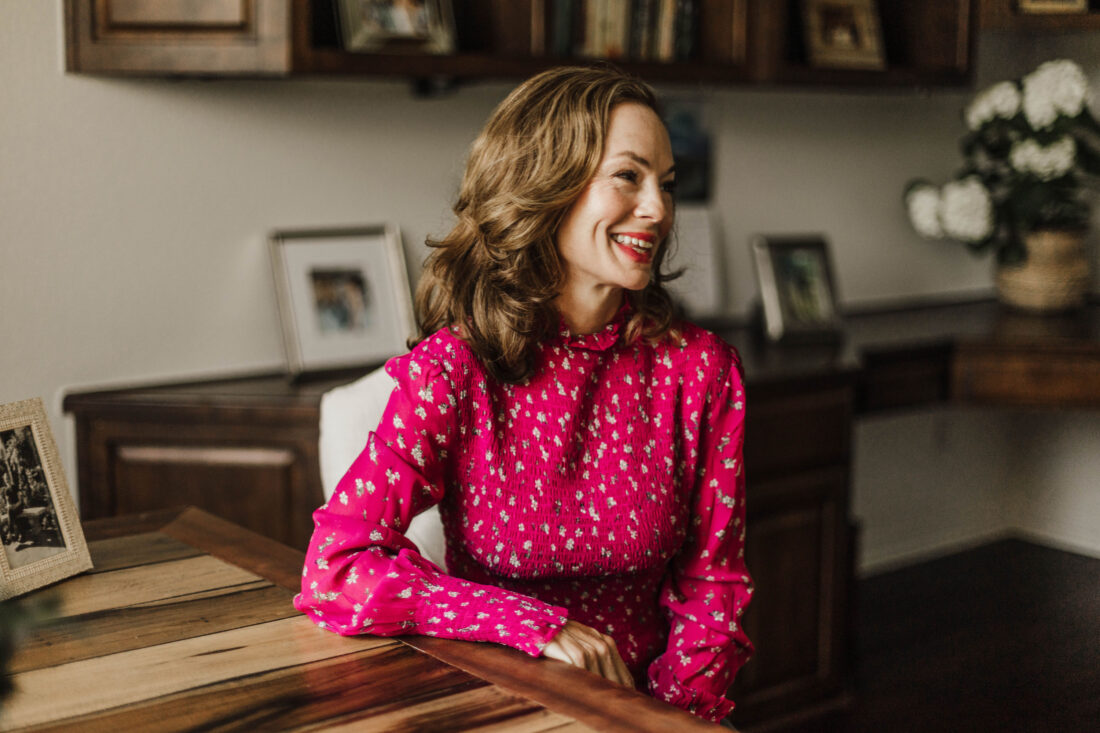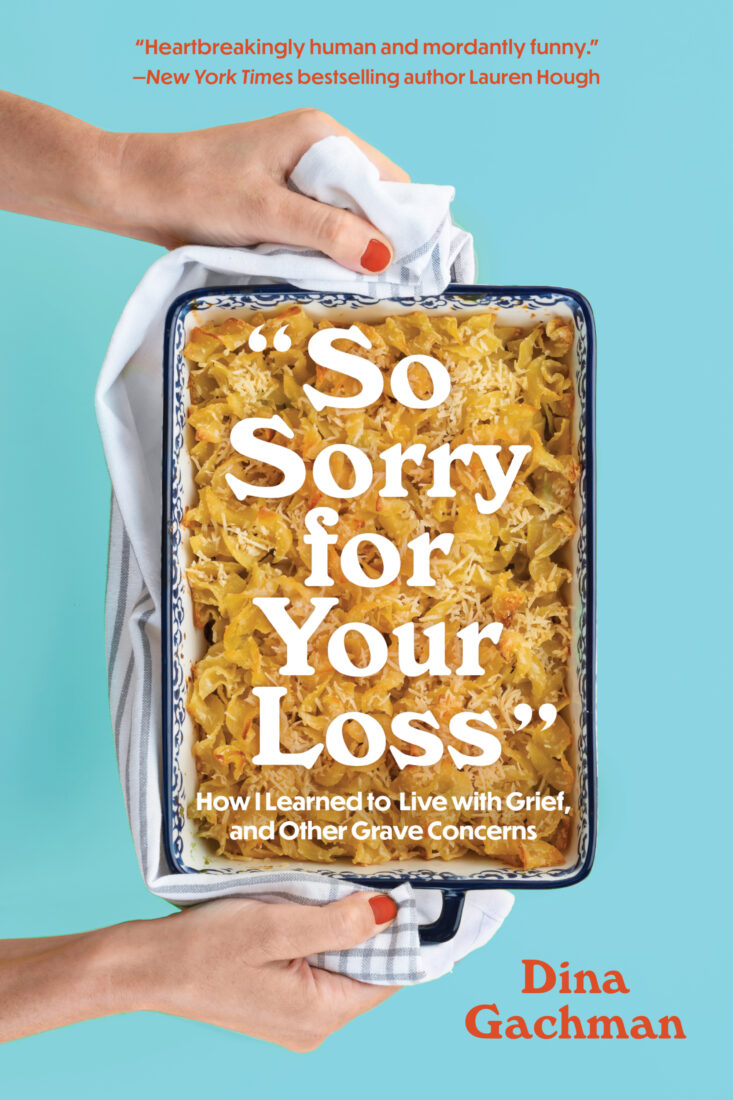Dina Gachman’s mother, Cindy, was a bonafide Texas belle. The vivacious woman loved red carpet specials and sassy Joan Rivers, but she taught her daughters to be sweet, recalls Gachman, an Austin-based journalist. At the end of her life, Cindy had a specific request: She’d lost her beautiful blonde hair to cancer treatment, and she didn’t want to be buried bald. “So we told the funeral director, ‘Well, you better bury her with the wig on,’” Gachman says. “Looking back, it’s kind of funny, and it was just a very Southern thing.”
Such painful memories tinged with humor comprise Gachman’s recently published book, So Sorry for Your Loss: How I Learned to Live with Grief and Other Grave Concerns. Gachman found catharsis in tackling the subject head on after losing her mother and her sister in a three-year span. She realized that while there were plenty of books on grief, few addressed the topic in the way she needed: with raw honesty and levity.

Her book weaves personal memories with reported tidbits from experts in the field such as counselors, psychologists, and a death doula, with plenty of humor sprinkled throughout to remind readers it’s okay to laugh even in our darkest moments. It’s a lesson Gachman learned from her mom. “She raised us to always remember our sense of humor and always laugh at ourselves,” she says. “Obviously you’re not going to be sitting in hospice telling jokes, but to process things, I think it can be really healthy.”
One anecdote Gachman shares in the book is an outlandish tale recounted by none other than a hospice nurse. Gachman and her sisters had only just met the nurse when she told them a gruesome story of how her family had been murdered years prior. They were stunned. “My mom’s laying ten feet from us and she’s talking about murder,” Gachman says. “My sisters and I now laugh about it because it’s so absurd. It’s the most absurd thing that could have happened.”
Gachman’s Southern roots shine in a chapter dedicated to food. “Grief is one thing that we just don’t talk about a lot,” she says. “I think in the South, we express it through food, which is why the [book’s] cover has a casserole on it.”
She explored global and Southern food traditions and interviewed Kayla Stewart, a food writer who has contributed to G&G. In the book, Stewart shares: “If a neighbor or community member dies, you can expect stacks of casseroles to be delivered to the person’s home—a kind Southern gesture that aims to soothe through taste.” For Southerners, preparing and sharing food offers a chance to nourish the bereaved and show up as a community.
A particularly poignant moment concerns a bucket of fried chicken from KFC, delivered by a longtime family friend while Gachman’s mom was in hospice. People often ask what a grieving person wants or needs, which can mentally tax more than help. This friend, however, simply showed up, relieving Gachman of her inherent Southern urge to play hostess. She and her sister were just sitting at the house, exhausted, not expecting company. “She handed us this huge bucket of KFC and said, ‘I love you. I’m here for you if you need me,’” Gachman recalls. “This woman is like seventy years old, and she just skedaddled.” Gachman and her sister didn’t even know they were hungry, but they devoured the crispy, salty chicken. “We probably looked like cave women in the kitchen eating,” she says with a laugh. “It revived us for sure.”
Writing the book was healing for Gachman, and now that it’s out, readers have reached out to her to share their own stories of loss and how they grieved. “The big message of the book is there’s not one way to do this, and you need to do what works for you,” Gachman says. But sharing a bucket of fried chicken couldn’t hurt.








